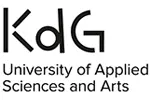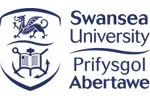
Environmental Conservation, BSc, University of Wales Trinity Saint David
the United Kingdom
University of Wales Trinity Saint DavidStudy options for this course
| The award | How you will study | Study duration | Course start | Domestic course fees | International course fees |
|---|---|---|---|---|---|
| BSc | Full-time | 3 years | - | - | - |
About Environmental Conservation, BSc - at University of Wales Trinity Saint David
Course Overview
If you are passionate about preserving the environment and want to develop the knowledge and skills to do so, then this course could be for you. The city centre campus is ideally situated between the Gower Peninsula and the Brecon Beacons National Park - providing perfect study sites for coastal science and habitat management.
We have a seventeen-year history in delivering courses on Environmental Conservation and with relatively small class sizes, there are lots of opportunities for shared discussion with your peers and experienced lecturers. This, combined with practical fieldwork, makes it a great course for gaining both the theoretical knowledge and practical skills that employers value. Our staff offer a friendly, accessible learning environment, with expertise in coastal, marine and freshwater ecology, waste management and environmental assessment. All are research active allowing students to engage with, and benefit from, research projects.
Key Features
Benefits of studying Environmental Conservation in the School of Architecture Built and Natural Environment include:
- Small class sizes where you have the chance to ask questions and to learn actively
- Opportunities for practical learning via fieldwork using our great geographic position
- Active engagement with employers, especially via our field courses where you will get to know reserve managers and environmental consultants
We are situated in an urban / maritime environment very close to Britain's first designated Area of Outstanding Natural Beauty. We are close to magnificent natural and physical resources of south, mid and west Wales and the University and its staff play a major role within the conservation and heritage management of these and other similar national assets.
Class sizes are generally less than 20 providing an environment that listens to and supports individual student needs. Our teaching is informed by research in subjects that extend right across our portfolio, suitably supplemented by external experts from around the world.
We engage with employers to develop and deliver courses that enhance our graduate's employability. Recent graduate success stories include employment in international organisations, entrepreneurship and community engagement. Our commitment is demonstrated by recent investment in facilities, staff and engagement, which means the future for our graduates, is stronger than ever.
We truly look forward to meeting you in person and helping you achieve your personal goals and ambitions.
Modules
Level Four
Year 1 - HNC/HND/BSc
Environmental Issues & Academic Skills
Earth Sciences
Physical Landscape
Fieldwork 1
Governance of the Environment
Environmental Biology
Level Five
YEAR 2 - HND/BSc
Environmental Monitoring & Remediation
Habitat Science
Environmental Law and Economics
Low Carbon Technologies
Research Methods and GIS
Coastal and Marine Science
Level Six
YEAR 3 - BSc
Freshwater Conservation
Sustainable Development
Environmental Assessment
GIS and Data Analysis
Research Project
Course Tutor(s)
- Associate Prof Christopher House
- Dr Rhian Elizabeth Jenkins
- Linda Rudd
- Sergio Garate
Assessment
Assessment varies across modules using a variety of methods from field and lab reports to presentations, essays and exams to give you the opportunity to do well and to demonstrate your developing knowledge.
We pride ourselves on giving excellent feedback at all stages of the course to help you to progress.
We use feedback to develop your course knowledge and, importantly, to help you to develop your wider skills in report writing, and communicating science so that you can demonstrate your ability to work effectively in the environment sector at the end of your course.
Career Opportunities
Our environment degrees combine academic study with the development of professional skills and competencies. You will gain experience in transferable employment skills, including:
- oral and visual presentations
- environmental assessments
- information dissemination
- data analysis
- species identification
- habitat surveying
- identification of environmental stressors
- report writing
Students take part in some volunteering days as part of fieldwork training, and are encouraged to find summer work placements which will provide important work experience.
You will be encouraged to use collaborations with work experience providers to collect data for your dissertation (your own major research project in your final year of study).
Organisations contributing to the Industrial Liaison Committee, e.g. Natural Resources Wales also provide opportunities for work placement and have supported Welsh language speakers from three of the current undergraduate cohorts, providing financial support and work placements. In addition, students are offered summer placements on the School's research projects.
One of our school research projects, reclamation of mining spoils, provides many opportunities in data collection and soil analysis. Other opportunities have been made available with City and County of Swansea, where students have volunteered in collecting and interpreting waste data from surveys.
NewsUWTSD FACE student volunteered in Tanzania for 10 weeks
UWTSD students to visit Chernobyl to study the impact of the disaster on the environment
CareersOur Environmental Conservation programmes cover a broad range of topics that can lead to a huge number of careers. Here is a list of our recent graduates new job roles:
- Bat Survey Officer
- Business Development Manager at Hydro Industries
- Cetacean Research Officer in Costa Rica
- Community and Nature Conservation Ranger at National Trust
- Conservation Manager at RSPCA Llys Nini Animal Centre
- Data Analyst at PHS Group
- Data Support Technician at Veolia
- Ecologist at Jacobs UK Ltd
- Energy Officer at Neath Port Talbot Council
- Environmental author
- Environmental Officer at Natural England
- Environmental Specialist at EcoVigour
- Environmental Technician at Rockwool
- Environmental Technician, Water Treatment, Oxfordshire
- Evaluation & Monitoring Officer at Down to Earth
- Fisheries Technical Officer at Natural Resources Wales
- Flood and Water Officer at Welsh Local Government Association
- Flood Risk Technical Assistant at Rhondda Cynon Taff Borough Council
- Health, Safety and Environmental Consultant
- IT Infrastructure Analyst at Coastal Housing Group
- PhD Researcher
- Press Officer at the Met Office
- Production team on Springwatch and Learning Assistant at Wildfowl and Wetlands Trust
- Project Manager at Hydro Industries Ltd
- Researcher for Nutopia
- Rural Development Manager at Neath Port Talbot
- Senior Ecologist at AECOM
- Senior Ecologist at South Wales Trunk Road Agent, Neath
- Sustainability Officer at UWTSD
- Team Manager of Commercial & Domestic Recycling, City & County of Swansea
- Waste Water Asset Telemetry Technician at Dwr Cymru Welsh Water
- Water Quality Permitting Officer at Cardiff
Further Information
Additional Costs
It is possible to complete this programme of study without any additional costs.
Students may wish to purchase materials for modules, such as major project but this is not a requirement and will have no bearing on the final grade.
Entry requirements
Entry Criteria
BSc Environmental Conservation - UCAS CODE: F901
You will need 96 UCAS Tariff points from A levels or their equivalent (240 UCAS tariff points)
HND Environmental Conservation
You will need 48 UCAS Tariff points from A levels or their equivalent (120 UCAS tariff points)
HNC Environmental Conservation
You will need 40 UCAS Tariff points from A levels or their equivalent (100 UCAS tariff points)
We welcome all potential students with an interest in and commitment to the environment to contact us and discuss entry requirements.
An alternative to A levels
Successful completion of an appropriate Access Course
or
Professional vocational experience
We particularly welcome mature students with relevant vocational or even voluntary experience in the environment sector. The requirements for entry will vary depending on your background. Sometimes we may ask you to take an Access course to prepare you for study, or we may accept you based on your experience alone.
If you have a passion for the environment but a non-standard educational background please do feel free to contact us to discuss your place.
Foundation Year in STEM (environmental stream) - UCAS CODE: HR3U
Also available as a four year programme (including foundation year)
Courses you may be interested in at other institutions
Below are some suggested courses at other providers that you may also be interested in:
Child and Family Health and Wellbeing with Foundation Year BSc (Hons)
University of Derby
Find out moreMultimedia & Creative Technologies Professional Bachelor Degree
KdG University of Applied Sciences and Arts
Find out moreDon't meet the entry requirements?
Consider a Foundation or Pathway course at University of Wales Trinity Saint David to prepare for your chosen course:
Foundation and Pathway Courses at other institutions
If you do not meet the entry requirements for this course then consider one of these courses from another institution:
Academic Foundation Year - Italian Creativity and Design
IED 鈥� Istituto Europeo di Design
Find out moreOther courses at University of Wales Trinity Saint David
There are 501 other courses listed from University of Wales Trinity Saint David. A selection of these are displayed below:
Stay Ahead with the Latest Study Abroad Updates!
Join the 小瓢虫传媒 email list and never miss a chance to turn your study abroad dreams into reality!
- Discover exciting opportunities from top universities worldwide
- Get expert insights and higher education news to guide your choices
- Receive exclusive tips, advice, and resources to make your journey smoother

Related Information
See other universities in Swansea
Find out more about studying in the United Kingdom












